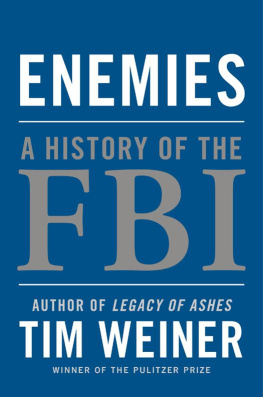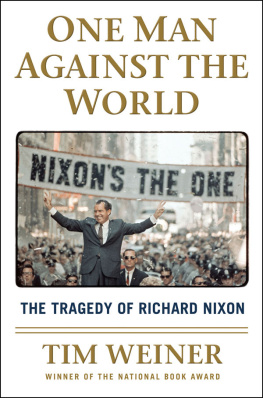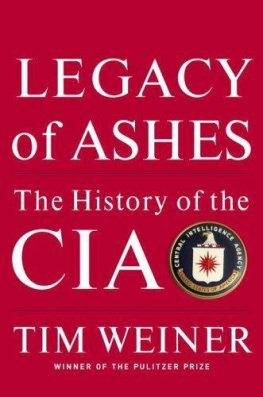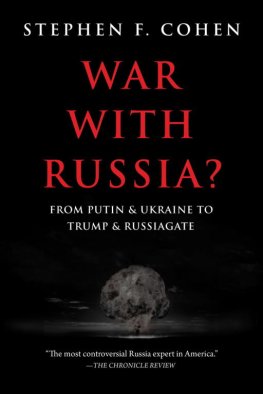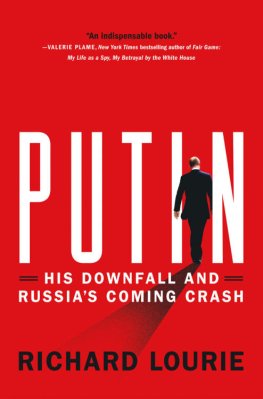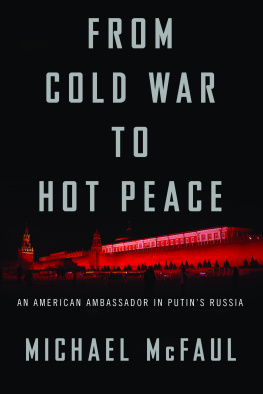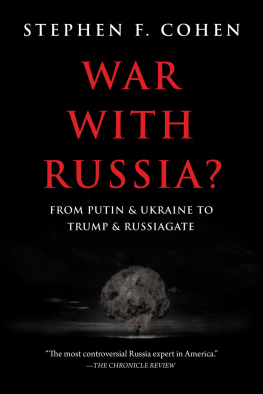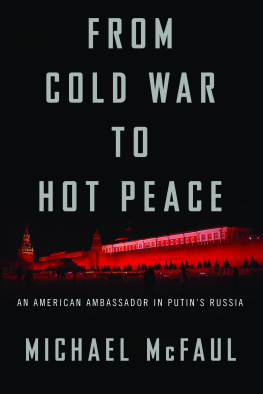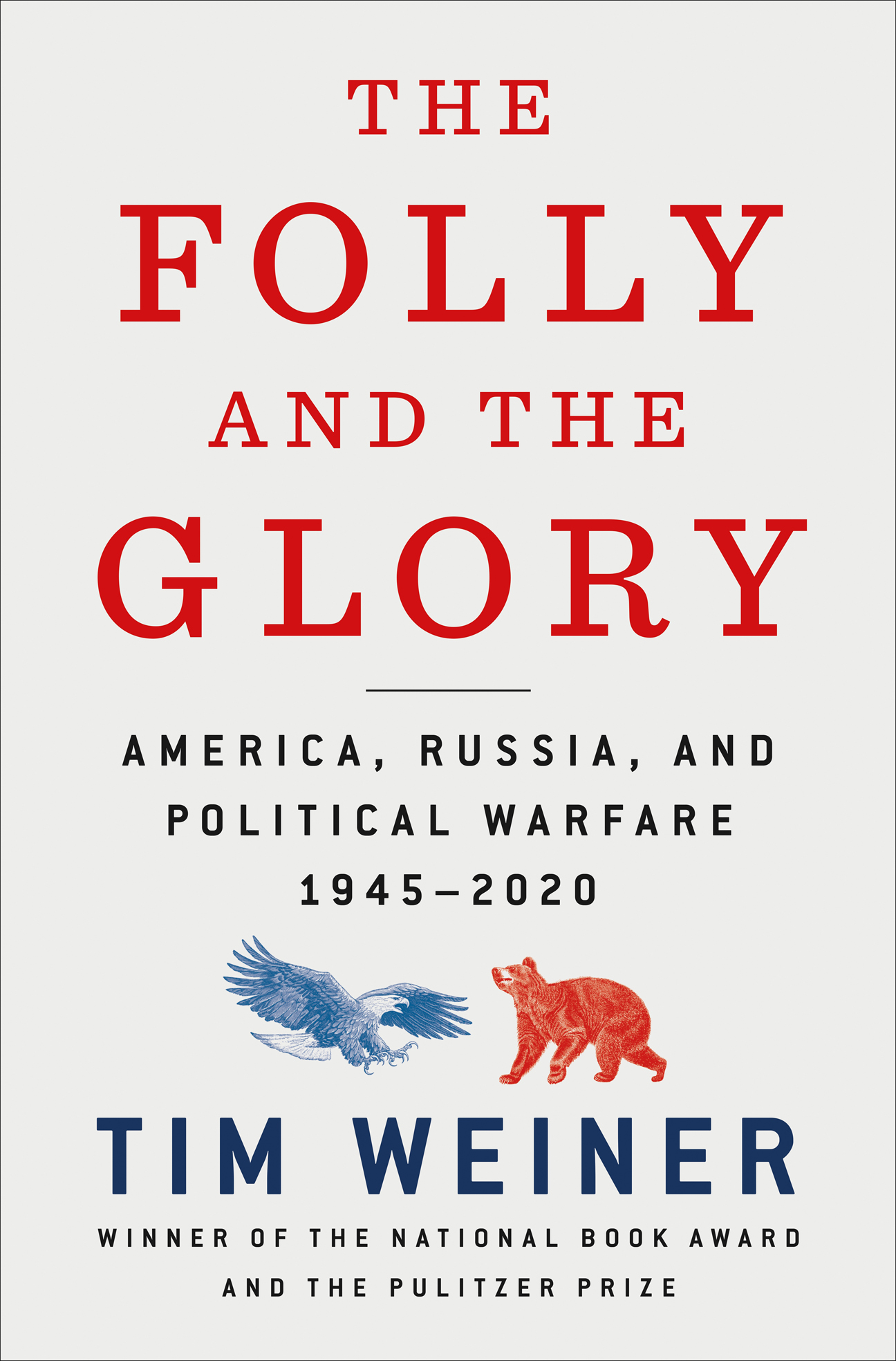The author and publisher have provided this e-book to you for your personal use only. You may not make this e-book publicly available in any way. Copyright infringement is against the law. If you believe the copy of this e-book you are reading infringes on the authors copyright, please notify the publisher at: us.macmillanusa.com/piracy.
Among the calamities of war may be jointly numbered the diminution of the love of truth, by the falsehoods which interest dictates and credulity encourages.
For seventy-five years, America and Russia have fought for dominion over the earth. In the twentieth century, America won the long cold war, and it seemed for a time that its triumph might endure, and freedom would flourish everywhere. The moment vanished. In the twenty-first century, Russia has fought back against America and its allies with stealth and subversion. Its stratagems have undermined American democracy, a political architecture that withstood a civil war and two world wars over the course of a quarter of a millennium. The outcome may determine if America will endure, and whether democrats or autocrats will rule the world. Great armies and navies and arsenals bristling with nuclear weapons have proved useless in this struggle. The battle depends on political warfare.
Political warfare is the way in which nations project their power and work their will against an enemy, short of launching missiles or sending in the marines. Its conduct requires the full spectrum of intelligence and diplomacy, from covert operations to coercive persuasion, and the skillful orchestration of these instruments by the president. The United States built a powerful machine for political warfare after World War II, and it sped the collapse of the Soviet Union, but the American engine sputtered at the turn of the century, and today it has all but died. The Russians have been using political warfare with skill and cunning ever since Vladimir Putin came to power twenty years ago. From 2014 onward, they have struck blows against the American political system, and in 2016 they helped elect a president in thrall to Putin, plunging democracy into danger. In 2020, they strengthened their powers of disinformation and deception and took aim at America again. We need to know how political warfare works before the next attack strikes. It is coming.
War is the state of nature in the world we have made. More than two hundred million combatants and civilians have been killed in the past century. The smoldering ruins of the First World War ignited the long fuse for the second, and out of the ashes of the second rose the toxic cloud of the cold war. Among the ideals shattered by these conflicts were the noble-minded rules codified early in the twentieth century: wars were fought between uniformed combatants, they began on one day with a formal declaration of hostilities, and they ended on another with the dignified signing of a peace treaty. Nations did not intervene in the internal conflicts of others. These proved to be empty promises for the thousands of American troops sent to Siberia to fight against the Red Army from August 1918 to June 1920, nineteen months after the Armistice; cold comfort to thirteen million Poles who woke up in September 1939 to discover that they were captives of the Russians, seized under a secret clause of the pact Stalin signed with Hitler.
Two laws of war still held in August 1945, after President Harry S. Truman dropped the bomb on Japan. One was fighting powerthe will of a nation to sacrifice the lives of its soldiers. The second was firepowerthe killing force of a nations arsenal. For the moment, though not for long, the United States had sole possession of the ultimate weapon. The destruction of cities reduced to radioactive rubble left the living to wonder what the Third World War would look like if Stalin had the secret of the weapon. In truth, he had it in hand, though no one in Washington knew it at the time. The Americans in charge of national security began to think about the unthinkable, and the advent of nuclear weapons changed the ways they thought. The wisest among them saw that if they were going to have it out with the Russians, the next war would destroy everything we wished to defend, and the living would envy the dead.
When the two sides failed to make peace between them, and set out to struggle for dominance over the nations of the world, they had to find a way to fight one another through the clandestine projection of powerspying and subversion, subterfuge and sabotage, stolen elections and subtle coups, disinformation and deception, repression and assassination. The Americans knew next to nothing of this way of war. The Russians had been at it for four centuries.
Ivan the Terrible, the sixteenth-century czar, had established a primitive secret police. Peter the Great and Catherine the Great had expanded Russian espionage, spying on foreign adversaries as well as on their own people. By the time Napoleon invaded in 1812, Czar Alexander I had strengthened Russias foreign intelligence and linked it with his military. The Okhrana, formed after the assassination of Alexander II in 1881, spied on enemies within and without Russia in the decades when anarchists were killing kings and queens, princes and archdukes, and, in 1901, the president of the United States. But the Kremlins spies were crushed by the Bolshevik revolutionaries who seized Russia in 1917. In their stead, in that cold and pitiless December, Vladimir Lenin created his own secret police: the All-Russian Extraordinary Commission for Combating Counter-Revolution and Sabotagethe VChK, known to all as the Cheka. We stand for organized terror, the first leader of the Cheka, Felix Dzerzhinsky, said in 1918. Stalin gave them unchecked power. In 1934, they instituted the Great Terror: one million people were murdered. By that year, Stalins spies were at work in the United States. By World War II, they had burrowed into the governmentthe State Department, the Justice Department, the Manhattan Project. In 1954, after Stalins death, the spy service was rechristened the Committee for State Security: the KGB. Charged with conducting espionage, subverting enemies with disinformation and political sabotage, securing the state, protecting its rulers, and crushing dissent, the KGB was a ministry of fear, combining the missions of J. Edgar Hoovers FBI, the cold-war CIA, and the Nazi Gestapo. It was the biggest intelligence service in the history of the world. If you, like Vladimir Putin, were born into poverty and hunger in the postwar rubble of mid-century Russia, and you aspired to power, the KGB was the place to be.
An immense statue of Dzerzhinsky stood in front of the Lubyanka, the KGB headquarters in Moscow, from 1958 until 1991, when it was toppled by protesters aiming to take down the crumbling architecture of the Soviet Union. The statue wasnt recast and remounted, but Putin rehabilitated Dzerzhinsky as he revived the Soviet intelligence state. Chekist Day is now celebrated every December 20 in the Kremlin. And Putin is a Chekist to the marrow of his bones. What that means is what it always has meant: the preservation of the leaders power, at all costs; the imprisonment and assassination of his domestic opponents; and the conduct of political warfare to mystify, mislead, and surprise his enemies, to trick them into acting against their own best interests, and to weaken their position in the world.


